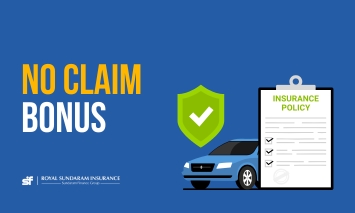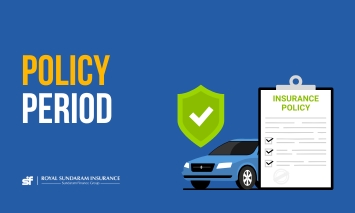Does Credit Rating Affect Car Insurance?
Mar 31, 2025 • 15 Min Read
When you think about car insurance, factors like your driving history, the type of car you own, and perhaps even your age or where you live, often cross your mind. However, one less obvious but increasingly significant factor that can influence your car insurance premium is your credit rating. If you're wondering, "Does credit rating affect car insurance?" or "Is car insurance based on credit score?" this blog will help you find out.
Understanding Credit Scores and Their Importance
Before we explore how your credit score influences car insurance, it's important to understand what a credit score is and why it matters. In India, a credit score is a three-digit number, typically ranging from 300 to 900, that reflects your creditworthiness—essentially, how likely you are to repay borrowed money. This score is determined by various factors, including your payment history, the amount of debt you carry, the length of your credit history, and the types of credit you've used.
While your credit score is a critical metric for lenders when evaluating loan or credit card applications, its significance extends beyond just borrowing. Insurance companies have discovered that credit scores can also predict how likely someone is to file an insurance claim. So, if you've been wondering, "Does my credit score affect car insurance?" you're asking the right question. Your credit score does, in fact, influence the premiums you pay for car insurance.
The Link Between Credit Scores and Car Insurance Premiums
You might wonder how something as seemingly unrelated as your credit score could affect your car insurance. The logic that insurance companies use is based on statistics and risk assessment. Research has shown that there is a correlation between credit scores and insurance claims. Specifically, individuals with lower credit scores are statistically more likely to file claims. This is why insurers often charge higher premiums to those with lower credit scores.
So, how does this work in practice? When you apply for car insurance, the insurance company may pull your credit report to assess your financial behaviour. They use a credit-based insurance score, which is slightly different from the credit score used by banks for lending. While it’s based on similar factors—such as your history of paying bills on time, your debt levels, and the length of your credit history—it’s tailored to predict your likelihood of filing an insurance claim.
If your credit score is high, it suggests that you are financially responsible and less likely to file a claim, which means you might be rewarded with lower insurance premiums. Conversely, if your credit score is low, it could indicate financial instability, leading insurers to perceive you as a higher risk. As a result, you might find yourself paying more for car insurance.
Why Insurers Use Credit Scores
The idea that insurance companies use credit scores might seem puzzling at first. After all, what does your ability to pay off a credit card have to do with your driving? However, insurance companies are in the business of assessing risk. They want to know how likely you are to cost them money, either through accidents, claims, or missed premium payments.
Studies have shown a statistical link between credit scores and the likelihood of filing claims. People with lower credit scores are more likely to file claims and, in some cases, file more expensive claims. While this may not be universally true for every individual, insurance is all about probabilities and averages. By using credit scores, insurers believe they can more accurately predict risk and adjust premiums accordingly.
This practice is common in many countries, including India, where insurers have begun to incorporate credit scores into their risk assessments more frequently.
Tips to Improve Your Credit Score and Lower Your Insurance Premiums
- Pay Your Bills on Time: Late payments can significantly lower your credit score. Make it a priority to pay all your bills on time, including credit card bills, utility bills, and loan payments.
- Reduce Outstanding Debt: High levels of debt can drag down your credit score. Try to pay off your debts as quickly as possible and avoid accumulating new debt.
- Limit New Credit Applications: Each time you apply for credit, it can have a negative impact on your score. Only apply for credit when necessary and avoid multiple applications in a short period.
- Maintain a Low Credit Utilisation Ratio: Your credit utilisation ratio is the amount of credit you’re using relative to your total available credit. Keeping this ratio below 30% can help boost your credit score.
- Regularly Check Your Credit Report: Errors on your credit report can negatively impact your score. Make it a habit to check your credit report at least once a year and dispute any inaccuracies you find.
Other Factors That Influence Car Insurance Premiums
- Your Driving History: A clean driving record with no accidents or traffic violations will generally result in lower premiums.
- The Type of Car You Drive: Certain makes and models are more expensive to insure, particularly luxury vehicles or cars with high repair costs.
- Where You Live: Your location can affect your premium, with urban areas typically having higher rates due to increased traffic and accident risk.
- Your Age and Experience: Younger, less experienced drivers usually pay more for insurance as they are statistically more likely to be involved in accidents.
- Coverage Options: The level of coverage you choose also impacts your premium. More extensive coverage will cost more, but it can provide greater financial protection.
Did You Know?
- Royal Sundaram provides additional discount for a good credit score. Why don’t you try it in your next renewal?
Conclusion
In the end, the answer to the question, "Does credit rating affect car insurance?" is yes. While your credit score does play a role in determining the cost of your car insurance, it is just one of many factors to consider when managing your finances. By understanding how your credit score impacts your insurance premium and taking steps to improve it, you can potentially lower your car insurance costs and enjoy better financial stability. Remember, maintaining a good credit score isn’t just about borrowing money—it’s about saving money on things like car insurance too. So, keep an eye on your credit score, take steps to improve it, and you might just see those premiums go down.



Discover the perfect insurance plan for you!
Get your free quote now!
Get StartedBy Clicking on Get Started, You agree to our Terms and Conditions and override DNC/NDNC registration.
More like this
View more





.png)